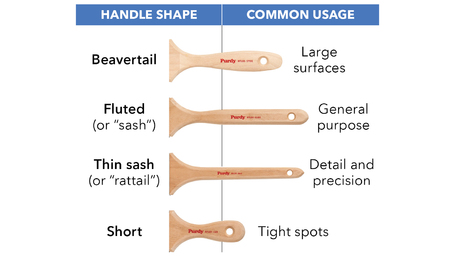Bathroom Remodeling – Denseshield vs other tile backer boards in bathroom remodels
We are getting ready to remodel our bathrooms in a 200+ year old house. We have done remodeling for charity in hurricane affected areas. We used a product from Georgia Pacific called Denshield in the bathrooms. The product was required in all the homes we were remodeling. It was easy to use, and great for either tile or paint. I am noticing in my area of CT, the product is hard to find. What are the pros and cons of denshield vs durarock, etc? Several years have past and I am wondering if there are any issues or concerns with the product.



















Replies
I've used both, but I like the cement board products better.
Denshield has a gypsum core that, while treated for water repellance, still is more susceptible to moisture problems than cement board.
dense shield - concrete board
we used DenseShield for many years; had no recalls or service issues
Concrete board will not be damaged by moisture but it is not waterproof by itself. If the groutlines fail water will still get behind the concrete board and possible into your framing
Lately we installed plain drywall and covered it with Schluter Kerdi. So far it proofed to be the best
I've done 2 baths with Kerdi. I think its the best system to date, although a little pricey.
Densehield is by far the supior product, I've used it for nearly 15 yrs. w/ no problems.
Durock and other cement boards require installing a vapor barrier on the stud face prior to the installation of the CB. Since you will now be penetrating the VB when fastening the CB, you still run the chance of moisture getting thru to the studs/insulation.
Denseshield is water proof, and as long as you seal the fastener heads (caulk) you will still maintain the VB integrity, I also seal the butt joints and all seams of the Denseshield. DS is available in 4x8 sheets also, unlike CB's, and assuming a 3x5 tub/shower 2 sheets vertical on each end and 2 horizontal pieces on the long wall (with the butt seam 48" +/- above the top of the tub rim) and you have fewer seams, and less chance of leakage,(all seams should be sealed w/ agood quality caulk)as well as the fastener heads(screws)
I have taken a piece of DS (4" x 8") and immersed it in a tub of water 4" deep,(stood vertically, so 4" in the water and 4" above the water) and left it for three weeks, there was no structural damage to the DS, still solid as the day I immersed it!
I use Shluter Ditra ( roll) for floor installs for about 6 yrs. but have only used 1 shower floor kit and thought it was a decent product (time will tell), but I love the Ditra.
Good Luck!
Geoff
P.S. What neck of the woods in CT. are you? I may be able to help you find a dealer for the DS
IMO, you only need a vapor barrier if its for an exterior wall. And even then, I think old fashioned tar paper is superior to plastic. It breathes a little.
For an interior wall, any little bit of moisture will easily dissipate inside the wall cavity. Plus, trapping moisture between the cement board and vapor barrier just creates a possible environment for mold.